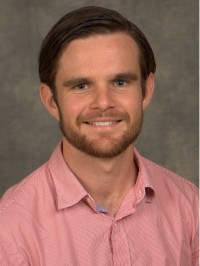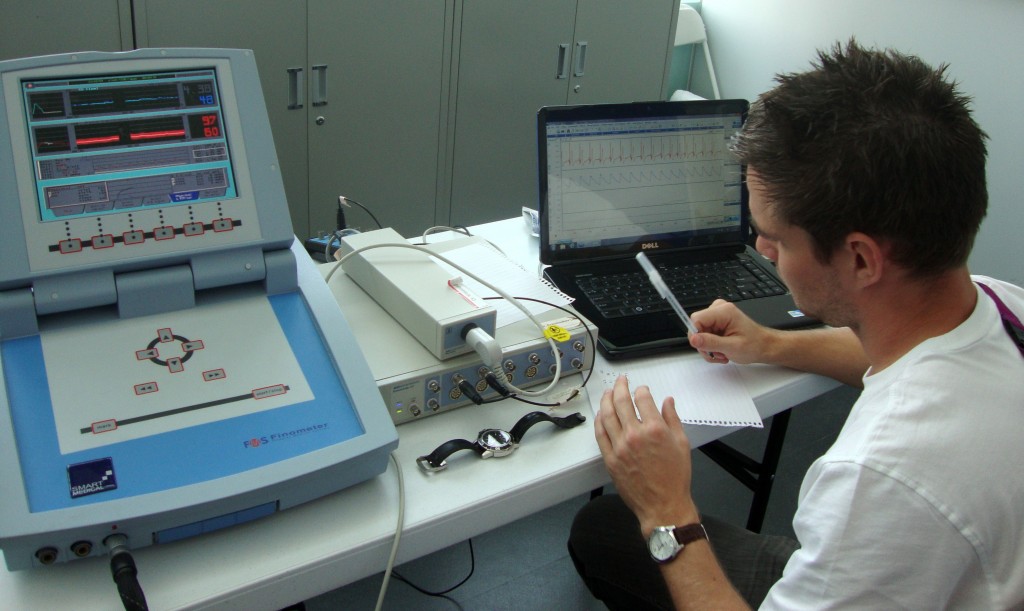
Principal Investigator
B.Sc. (Sport & Exercise Science) [University of Essex]
M.Sc. (Sport & Exercise Science – Human Performance) [Brunel University]
Ph.D. (Sport & Exercise Science – Spinal Cord Injury) [Brunel University]
Associate Professor, Cellular & Physiological Sciences, Medicine, University of British Columbia
ICORD Associate Director, Translational Research
Research Interests
Cardiovascular health; Exercise; Rehabilitation; Sport cardiologyDr. West is a translational research scientist who investigates the autonomic and cardiorespiratory consequences of SCI. His research traverses the discovery science-clinical spectrum: at the discovery science level, he investigates the mechanisms that underpin cardiac and vascular adaptations to exercise, and at the clinical level, he works with Paralympic athletes to investigate the limitations to exercise performance, and more recently the relationship between autonomic completeness of injury, sporting classification and cardiovascular function. “While we know that exercise is beneficial for people with spinal cord injury, we are still far from understanding the optimum mode, intensity and duration of exercise that is best,” says Dr. West. “Equally we still do not truly understand if and how exercise exerts a beneficial cardio-protective effect in the SCI population.”
Dr. West says that the best thing about his work at ICORD is the diversity of his research: one day he can be investigating cells under the microscope and the next he can be working with one of the top Paralympic athletes in the world. He thinks the best thing about ICORD is the breadth of expertise and equipment available in the Blusson Spinal Cord Centre and through UBC, along with the passion shared by all of the researchers and staff who work within the building.
Currently recruiting for:
Recent Collaborations:
Dr. West collaborates with Dr. Andrei Krassioukov, Prof. Ismail Laher and Prof. John McNeill to investigate the peripheral vascular and cardiac adaptations to exercise in spinal cord injury. He is also working with researchers at the UBC James Hogg research Centre (iCAPTURE) where he has shared access to a state of the art echocardiography machine.
 Major Findings:
Major Findings:
Dr. West has conducted a series of basic science experiments to comprehensively show that passive lower-limb exercise is able to prevent many of the cardiovascular abnormalities that accompany SCI. He is just in the process of beginning the first clinical translation of this work where he will compare the integrated physiological responses to multiple forms of lower-limb exercise modalities.
He has also made a substantial contribution to the elite Paralympic sport literature, where he has shown that the degree of remaining cardiovascular function is a critical determinant of exercise performance in athletes with SCI, such that those with more ‘intact’ cardiovascular control are able to perform better during tests of endurance performance than those with minimal cardiovascular control. More recently, as part of a research team that has attended the last 3 Paralympic games, Dr. West has found that the association between cardiovascular function and sports classification in athletes with SCI is very weak. Instead, cardiovascular function seems to be much more dependent on autonomic completeness of injury.
Dr. West worked closely with Dr. Krassioukov and the International Paralympic Committee to try to improve the classification procedure for wheelchair athletes. This work was highlighted during the Café Scientifique held at ICORD in November 2012. A video of his presentation is available here.
Techniques employed in lab:
- Exercise testing
- Ultrasound
- Histology; microscopy
- Telemetry for continuous blood pressure and heart rate monitoring
Affiliation with organizations and societies:
Awards:
Some of Dr. West’s recent major awards and accomplishments include:
- Scholar Award (Michael Smith Foundation for Health Research, 2014)
- Postdoctoral Fellowship (Michael Smith Foundation for Health Research, 2013)
- Young Investigator Award (American Spinal Injuries Association)
- Postdoctoral Fellowship (Craig H. Neilsen Foundation, 2012-2014)
- International VISIT Award (ICORD, 2011)
Trainee Awards
| Year | Name | Award |
| 2022 | Oliver Wearing |
|
| 2020 | Ryan Hoiland |
|
| 2020 | Mary Fossey |
|
| 2020 | Alex Williams |
|
| 2019 | Liisa Wainman |
|
Current Lab Members:
| Masters Students | Ph.D. Students | Postdoctoral Fellows | Research Staff |
|---|---|---|---|
| Paige Pomeroy | Julia Hansen | Dr. Tara Fortino | Dr. Oliver Wearing |
| Julian Jongkind | Mina Kafashi | ||
*has graduated in the past year
Current Opportunities in Lab:
Please contact Dr. West with inquiries.
Videos:
Recent publications
- Sobeeh, MG et al.. 2025. Uncovering the Spectrum of Orthostatic Hypotension in Athletes with Spinal Cord Injury: Implications for Diagnosis, Classification, and Performance.. Med Sci Sports Exerc. doi: 10.1249/MSS.0000000000003859.
- Scheuren, PS et al.. 2025. Exploring the Landscape of Biomarkers in Spinal Cord Injury.. Top Spinal Cord Inj Rehabil. doi: 10.46292/sci24-00076.
- Thrall, SF et al.. 2025. Acute intermittent hypercapnic hypoxia augments left ventricular contractility.. J Physiol. doi: 10.1113/JP288115.
- Ahmadian, M, Erskine, E, West, CR. 2025. Cardiac neuromodulation with acute intermittent hypoxia in rats with spinal cord injury.. J Physiol. doi: 10.1113/JP287676.
- Wearing, OH et al.. 2025. Guidelines for assessing ventricular pressure-volume relationships in rodents.. Am J Physiol Heart Circ Physiol. doi: 10.1152/ajpheart.00434.2024.

